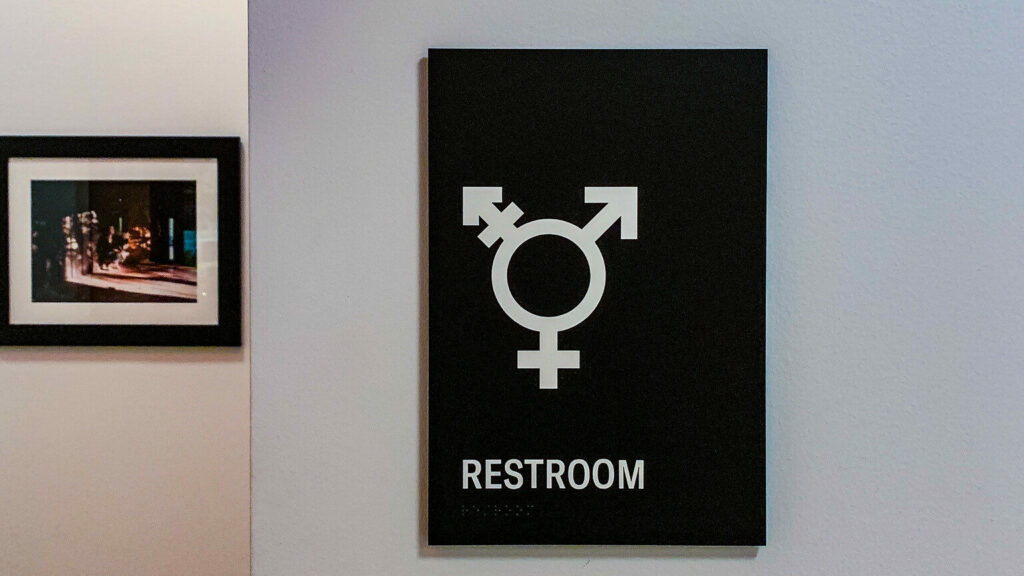
Know these Transgender Rights in the Workplace
Every human being has rights. No conditions of bases including gender, color, race, size, etc., should exist. Today, we’re going to be discussing individuals who are transgender in the workplace and the specific conundrums that they unwillingly go through just to put food on the table.
Yes, it’s unfair but transgender discrimination in workplaces is more rampant than might think. There are 195 countries that have different laws and regulations. It’s not hard to come up with the conclusion that the majority of the world’s trans population still suffers from bigotry.
One may argue that there are movements on social media and trans people are gaining recognition via international news broadcasts. However, these still don’t mirror reality.
On this page
Trans in the Workplace in Different Countries
Openly or secretly, there are trans people in the workforce. But this doesn’t mean that because one company imposes transgender rights, it doesn’t mean that all companies are trans-inclusive workplaces.

In more progressive countries where meritocracy is more revered than upholding religious laws, trans people have an equal footing. For example, in countries like the USA, Canada, Australia, and many countries in Europe, many companies don’t care about one’s gender identity.
And in more traditional countries such as the Philippines, Malaysia, and countries in the Middle East, having a trans employee may impact the image of the companies. In some cases, being trans or belonging to the LGBTQIA+ community is considered a crime and simply not allowed.
Examples of Discriminatory Acts that Trans People Experience in the Workplace
Many people tend to trivialize the woes of trans people because they aren’t trans. It is very similar to how most men feel about women’s rights. To be empathetic to different groups of people, one must know every detail of what they go through.

In this section, we will paint different pictures to clarify why most companies should turn their workplace into safe spaces.
1. The Controversial Use of Restrooms
Many establishments have been highly criticized for mostly discriminating against transgender women using the women’s restroom. Because companies don’t educate their employees about gender identity, their employees impose non-existent rules based on their religious and regressive beliefs.
A restroom is a necessity in all establishments. Correction, it’s a necessity for every human being, hence, the existence of portable toilets in public places and even on highways.
Many trans people are forced to use the bathroom based on their assigned gender at birth. Many bigoted and ignorant individuals fear that men pretending to be women will just use transgenderism as an excuse to take advantage of cis women.
The fear that they have is based on what they can sympathize with even if there are more chances of men possibly taking advantage of transgender women who are entering a male’s restroom.
2. Dress Up according to their Assigned Gender at Birth
Most trans people have gender dysphoria. It’s a condition that can lead to depression if not treated. The common treatments for gender dysphoria are gender expression, hormone replacement therapy, and gender reassignment surgery.
If a trans person is forced to express themselves and not be true to their gender identity, it can lead to serious mental illnesses. These range from depression and anxiety. Worse is when they’re not able to express who they really are, they can be compelled to take their own life.
If you’re not a trans person and you want a simplified example that you can easily relate to, picture yourself having tattoos and not being allowed to work just because of your self-expression.
Or you, are being judged not because of what you can do for the company, but because of how you look. It can be the color of your skin, your size, your height, etc.
3. Tribe Mentality
The reality is that many people have a tribe mentality. It is the human tendency to seek out and connect with like-minded people who share common interests, beliefs, or habits.
You simply will never be good enough to these people because of the fact that you don’t belong. This is worsened when this mentality is possessed by key people who are making the decisions in the company.
Sadly, this is not just about people within the LGBTQIA+ community versus people who aren’t in it. On many occasions, it becomes a Cis vs. Trans battle. Kind of like how cisgender gay men or women will pander more to hetero cis men and women and discriminate against trans people.
4. The Ever-changing Work Hours
This often happens with changes in shifts. Some people who belong to the trans community are forced to swap shifts just because a cisgender colleague decides to have a spawn or for other personal reasons.
Some trans people are asked to change their working hours or fill in to give way to the life decisions of another employee. These can range from family trips, children’s graduations, etc.
The employer’s justification as to why this should be done is because most people in the trans community don’t have kids. Some of them go so low as to think that they don’t have social lives.
Determining Factors of a Trans-inclusive Workplace
Let’s move on to a more positive and actionable direction. If you’re a transgender individual who’s looking for a trans-inclusive workplace, determining them is vital. These are some of the most telling signs that you should fill out their application forms.

1. Trans-inclusive Policies
Some companies have policies exclusively to protect transgender people. Many people see this as a privilege when in reality, it’s a right. Even if the world turns upside down, there’s no denying that transgender people experience work discrimination on a daily basis.
If you’re a transgender person and you’re being interviewed for a job, there’s no harm in asking if they have trans-inclusive policies.
2. Benefits for transgender people
There are companies that help transgender people with their transition. Some of them offer hormone replacement therapy allowances and others go as far as to pay for gender reassignment surgery. Although these are rare, they exist.
3. SOGIE training for cisgender employees
Every individual has a unique sexual orientation and gender identity expression. It’s not only trans or nonbinary individuals who possess it. That’s why it’s very important to know if the company you’re eyeing has the training to ensure that everyone working for them is respecting their colleagues’ SOGIE.
4. Access to bathrooms
A big red flag is when a company doesn’t allow transgender women to use the women’s restroom and transgender men to use the men’s bathroom. This is the easiest way to determine if a company is trans-inclusive or not.
Steer clear from companies like these because the upper management tolerates discrimination.
5. Pronouns
If people in the company couldn’t be bothered to use the appropriate pronouns according to your gender identity, leave. There’s no excuse for this inhumane behavior. It takes almost zero effort to change him to her and vice versa. This will only unnecessarily trigger your gender dysphoria.
6. Dress codes
Lastly, if the company allows you to dress up according to your gender identity, go for it. This is the most impactful factor because it encompasses everything that validates your reality.
There are many opportunities and you must never compromise your happiness and who you are for anyone.
Happy job hunting!



